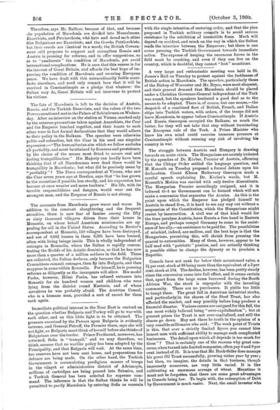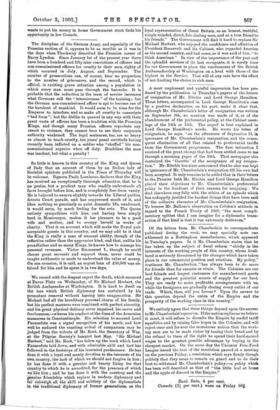Consols have not sunk far below their accustomed value, a
2i per cent. stock at 88 being more than the equivalent of a 3 per cent, stock at 104. The decline, however, has been pretty steady since the conversion came into full effect, and it seems certain that, apart from the large sums borrowed during the South African War, the stock is unpopular with the investing community. There are no purchasers. It yields too little to tempt them. The great fall in American industrial stocks, and particularly;in the shares of the Steel Trust, has also affected the market, and may possibly before long produce a financial disaster. Various causes are assigned for this fall, the one most widely believed being "over-capitalisation"; but at present prices the Trust is not over-capitalised, and still the shares go down. May not there be truth in the opinion of a very sensible millionaire who said "The weak point of Trusts is this, that over a strictly limited figure you cannot hire honest men with sufficient ability to manage such complicated businesses. The detail upon which all depends is too much for them" ? That is certainly one of the reasons why great con- cerns, when turned into limited companies, often pay 6 and 8 per cent. instead of 25. It is true that Mr. Rockefeller does manage his great Oil Trust successfully, growing richer year by year; but then, we imagine, the details in that business, though immensely numerous, are very little varied. It is like cultivating an enormous acreage of wheat. Meantime it must not be forgotten that there are some great advantages in Consols being low. To begin with, the redemption of Debt by Government is much easier. Next, the small investor who
wants to put his money in home Government stock finds his opportunity in low Consols.



























































 Previous page
Previous page